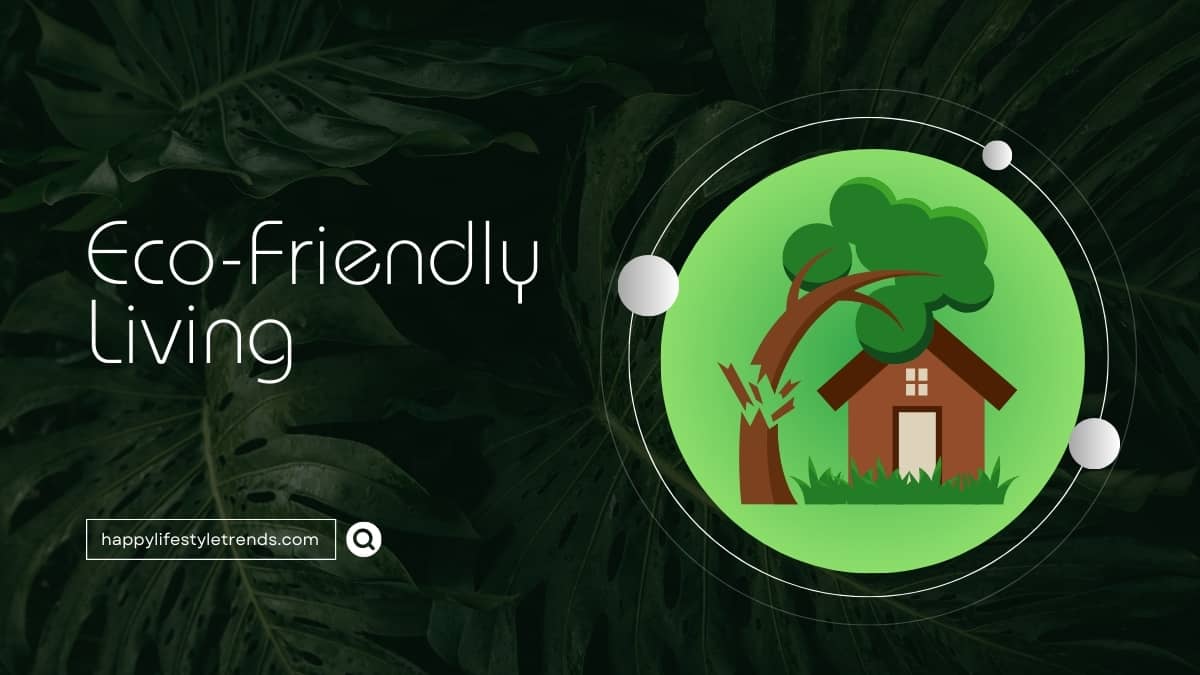Eco-friendly living involves a conscious effort to reduce environmental impact by adopting sustainable practices, utilizing eco-friendly products, and striving towards a zero-waste lifestyle. This comprehensive approach benefits the planet, enhances personal well-being, and promotes a more sustainable economy.

Understanding Eco-Friendly Living
The foundation of eco-friendly living is understanding the concept of a carbon footprint, which represents the total emissions of carbon dioxide (CO2) and other greenhouse gases produced by our actions. Reducing one’s carbon footprint minimizes the negative impact on the climate and the environment. This can be achieved through various lifestyle changes and sustainable practices.
Read More: Get details about founder support.
Sustainable Living Practices
Adopting sustainable living practices involves rethinking our daily activities, including how we shop, eat, travel, and consume resources. Start by considering transportation methods. Opting for public transit, biking, walking, or carpooling can significantly decrease personal CO2 emissions. Another critical area is energy consumption. Transitioning to renewable energy sources, such as solar or wind power, can drastically reduce one’s carbon footprint. Moreover, energy efficiency can be enhanced by using LED lighting, energy-efficient appliances, and improving home insulation.
Choosing Eco-Friendly Products
When it comes to products, choosing items that are made sustainably or designed to reduce waste can make a big difference. Eco-friendly products are typically made from recycled materials, biodegradable, or manufactured through environmentally friendly processes. For example, using reusable bags, bottles, and containers can significantly reduce plastic waste. Similarly, opting for eco-friendly clothing—items made from organic or recycled materials—supports sustainable fashion industries.
Embarking on a Zero-Waste Lifestyle
A zero-waste lifestyle is an advanced step in eco-friendly living, focusing on waste prevention that aims to redefine the system of resource consumption. It involves creating a circular economy where everything is reused, recycled, or composted, leaving no trash to be sent to landfills or incinerators. Starting a zero-waste lifestyle can begin with small steps:
- Refuse what you do not need. Avoid single-use plastics and disposable products.
- Reduce your consumption. Buy less and choose items that are durable and designed to last.
- Reuse as much as possible. Opt for reusable alternatives to disposable items.
- Recycle what you cannot refuse, reduce, or reuse.
- Rot (compost) organic waste can significantly decrease methane emissions from landfills.
Practical Tips for Eco-Friendly Living
- Educate Yourself and Others: Awareness is the first step. Educate yourself about environmental issues and sustainable practices and share this knowledge with others to inspire more eco-friendly actions.
- Conduct an Energy Audit: Identify areas where energy is wasted and take corrective action. Simple fixes like sealing leaks and drafts can substantially impact energy conservation.
- Support Local and Organic: Locally sourced, organic foods do not involve long-distance transportation or harmful farming practices, reducing your carbon footprint and supporting local economies.
- DIY Products: Homemade cleaning products, such as those made from vinegar, baking soda, and lemon, can reduce the need for chemical-laden alternatives and lower the amount of packaging waste.
- Invest in Eco-Friendly Technology: Whether it’s a high-efficiency washing machine or a smart thermostat, investing in eco-friendly technology can pay off in the long run, both environmentally and financially.
- Plant Trees and Gardens: Gardening or tree planting can help absorb CO2, reduce air pollution, provide fresh produce, and promote local wildlife.
Read More: Entrepreneurs empowerment newsletter, click here.
The Benefits of Eco-Friendly Living
The benefits of adopting an eco-friendly lifestyle extend beyond environmental impact. Economically, it can lead to savings through reduced energy costs, less frequent purchases, and minimized waste. Health benefits also arise from reduced exposure to toxic materials and increased physical activity. Socially, it fosters community interactions through shared resources and local purchasing.
Eco-Friendly Lifestyle Impacts Our Environment
Adopting eco-friendly living practices can profoundly impact our environment, offering immediate and long-term benefits. Here are two key ways these practices contribute positively:
Reduction in Pollution and Greenhouse Gases: By choosing sustainable transportation, using energy-efficient appliances, and relying on renewable energy sources, we significantly decrease the amount of greenhouse gases released into the atmosphere. Reducing carbon emissions is crucial in slowing down the rate of climate change. Additionally, using eco-friendly products such as biodegradable materials and reducing chemical pollutants can minimize water, air, and soil pollution, leading to a cleaner and healthier environment.
Conservation of Resources and Biodiversity: Eco-friendly living encourages the efficient use of resources, which helps conserve them for future generations. Practices like recycling, using sustainable materials, and minimizing waste contribute to less strain on natural resources like timber, water, and minerals. Moreover, by supporting organic and local farming, we reduce the need for harmful pesticides and fertilizers, which can degrade ecosystems and harm wildlife. This, in turn, supports biodiversity and helps maintain ecological balance.
Overall, the shift towards eco-friendly living helps mitigate the effects of environmental degradation and promotes a sustainable consumption model that benefits both the planet and its inhabitants.
Read More: Click here to find the best lawyers in your city
Conclusion
Transitioning to an eco-friendly lifestyle takes time doesn’t happen. It requires dedication, education, and incremental changes. Individuals can significantly impact their carbon footprint by adopting more sustainable practices, choosing eco-friendly products, and aiming for a zero-waste lifestyle. The journey towards eco-friendly living is about making better environmental choices and fostering a sustainable future for future generations. Each small step contributes to a more significant change, making our planet a healthier place for everyone.




